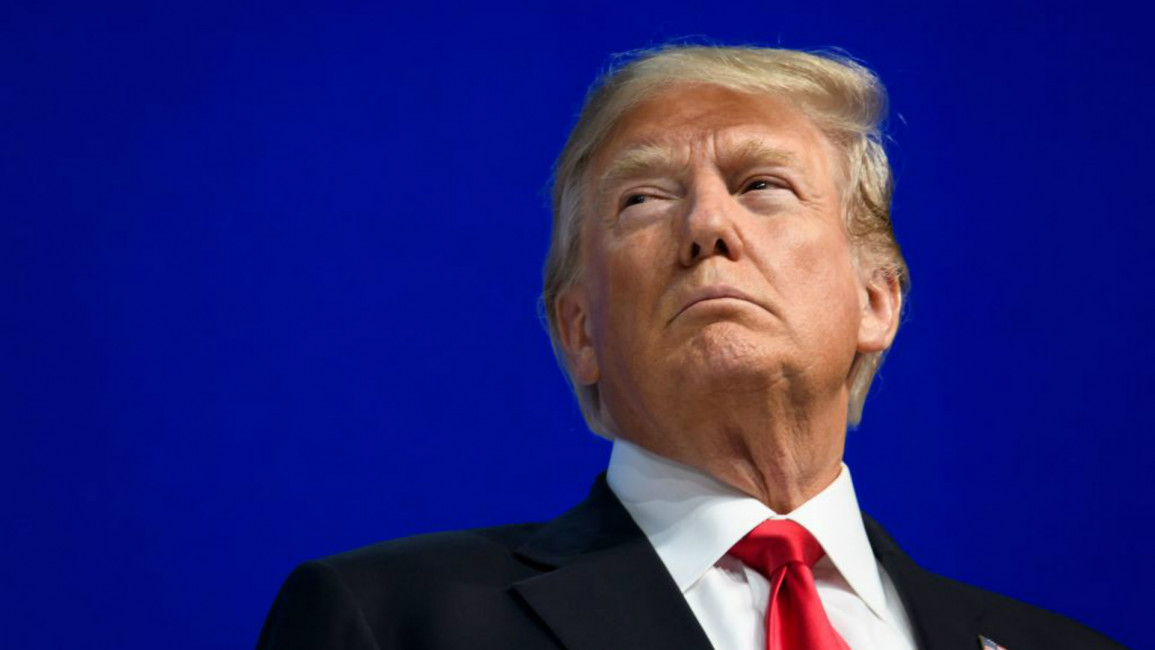Trump plans to tackle US drug crisis by executing dealers
Drug dealers in the US could face the death penalty if a new anti-opiod addiction strategy planned by President Donald Trump goes ahead.
"The department of justice will seek the death penalty against drug traffickers when it's appropriate under current law," said Andrew Bremberg, director of Trump's Domestic Policy Council.
The strategy is set to be unveiled in New Hampshire Monday, which has been hit hard by widespread opiod addiction.
Trump has trying to portray himself as tough on drugs and the new strategy includes laws reducing the amount of drugs needed to trigger mandatory minimum sentences for traffickers who knowingly distribute certain illicit opioids.
First Lady Melania Trump shown an interest in the issue - particularly as it pertains to her focus on child welfare - and will join the president when he unveils the anti-opiod addiction plan.
If approved by Congress it will include mandatory minimum penalties for distributing certain opioids, broadening education and awareness, and expanding access to proven treatment and recovery efforts.
It will also look at cutting opiod prescriptions by a third over the next three years.
But it is the prospect of executing drug traffickers that will likely attract the most attention from media.
Trump has mused openly in recent weeks about subjecting drug dealers to the "ultimate penalty".
He has used Singapore as an example saying that the country's harsh penalties against traffickers has contributed to low rates of addiction.
"Some countries have a very, very tough penalty - the ultimate penalty. And, by the way, they have much less of a drug problem than we do," Trump said. "So we're going to have to be very strong on penalties."
Trump has also argued that someone can be put to death in the US for shooting one person, but that a drug dealer who potentially kills thousands can spend little or no time in jail.
"The only way to solve the drug problem is through toughness," Trump said in Moon Township.
The Justice Department said the federal death penalty is available for several limited drug-related offenses, including violations of the "drug kingpin" provisions of federal law.
Doug Berman, a law professor at Ohio State University, said it was not clear that death sentences for drug dealers - even for those whose product causes multiple deaths - would be constitutional.
Berman said the issue would be litigated extensively and would have to be definitively decided by the US Supreme Court.
Opioids - including prescription opioids, heroin and synthetic drugs such as fentanyl - killed more than 42,000 people in the US in 2016, more than any year on record, according to the Centers for Disease Control and Prevention.
Trump has said that fighting this epidemic is a priority for his administration.
Last October, Trump declared the crisis a national public health emergency - short of the national state of emergency sought by a presidential commission he put together to study the issue.
"We call it the crisis next door because everyone knows someone," said Kellyanne Conway, a Trump senior adviser. "This is no longer somebody else's community, somebody else's kid, somebody else's co-worker."
The US fought a "War on Drugs", most notably under Ronald Reagan in the 1980s. Trump has promised the revive this tough strategy against the drugs trade, which saw few results over the past three decades.



